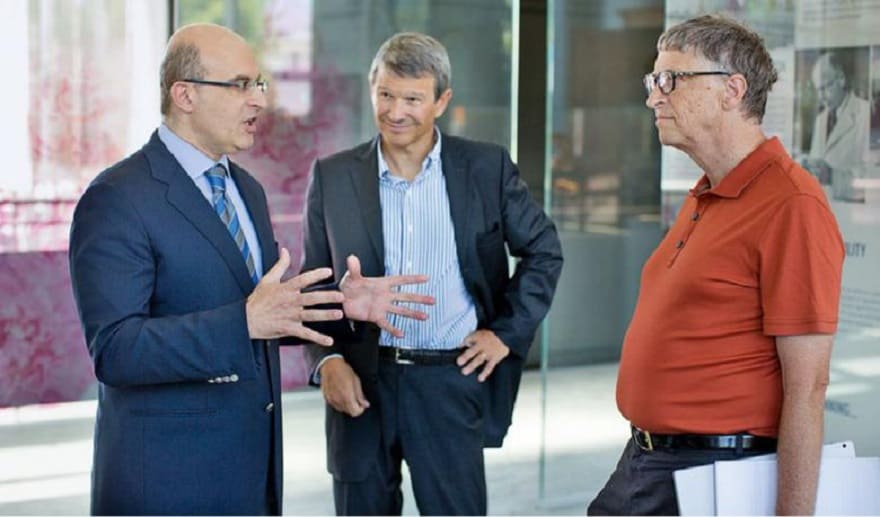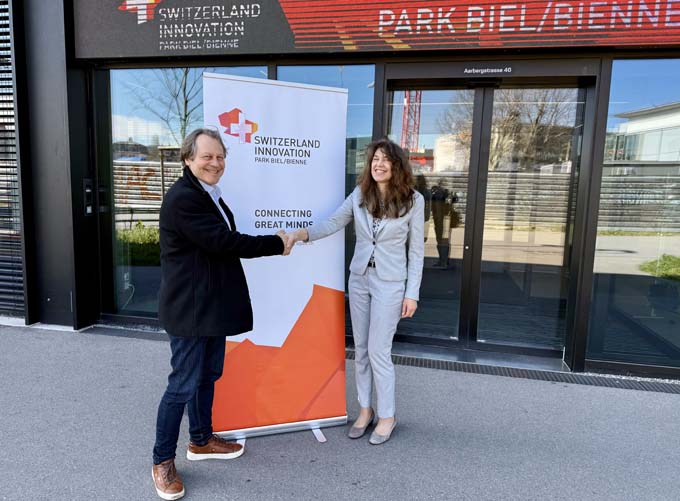«To commit globally while supporting locally»
Firmenich is one of the leading companies in the fragrance and flavor business. Founded in 1895 and headquartered in Geneva, Switzerland, Firmenich has created many of the world’s best-known perfumes and flavors enjoyed around the world. For years, sustainability has been a key commitment of the privatly owned company.

In the year 1991, Firmenich signed the Inter-national Chamber of Commerce Business Charter on Sustainable Development, and al-most 25 years later, its commitment to sustai-nability remains unwavering. Thus quotes Firmenich’s CEO Gilbert Ghostine.
«Sustainability is in our DNA»: In what way is it easier for a family-owned company to be sustainable than for other corporations?
As a Family business, with a 121-year legacy, we know that business cannot thrive in a society that fails. That’s why sustainability is not only at the core of our strategy but firmly anchored in our core values. Also we always take a long term view of what we do. It’s critical for our shareholders to hand the company over to the next generation in the best state possible. We also know that, given the complexity of the challenges we are facing today, no-one can solve them alone. That’s why we partner with likeminded visionary experts to scale up our impact together. We believe in engaging with partners cutting across all sectors to address issues in an integrated way, from an ecosystem perspective. In this context, we have been a founding and board member of the Swiss Global Compact Network since its creation in 2006. By bringing together likeminded businesses around a common framework and set of principles we can align our actions. By working together in the same direction, we learn from each other and more importantly, we scale up our impact and make it sustainable. What’s great about the UN framework is how it connects the global with the local. It is built to enable you to commit globally while supporting you locally. That’s what makes it so unique and effective!
How does sustainability influence your innovation capability?
Today there is not just a moral imperative to be sustainable, but a clear business case too! That’s why we put our innovation to work to address the United Nations Sustainable Development Goals and turn them into business opportunities. For instance, Goal 3: «Good Health and Well-Being»: It is estimated that global healthcare costs could rise to between USD 5–10 trillion by the end of the decade due to obesity and other diet-related diseases.
«We increased our capacity by 30 %, while reducing our water consumption by the same amount.»
To address this issue, we are working on enabling healthier diet options. For instance we have developed leading technologies that reduce sugar, salt or fat from the food and beverages you love, without compromising on taste. This year alone our technologies enabled us to remove 100 000 tons of sugar from food and beverages, representing 420 billion calories. A collateral benefit of this, from an environmental perspective, is that it enabled to take 2500 trucks off the roads! Another example, is Goal 6, «Clean Water and Sanitation »: 2.5 billion people do not have access to proper sanitation facilities today and defecate in the open. This causes severe epidemics and a child mortality rate reaching 800 000 children a year. When we realized that smell could play a critical role in solving this issue, we decided to take action. To scale up our impact we decided to partner with the Bill and Melinda Gates Foundation to reinvent the toilet experience at the Bottom of the Pyramid. We sent our scientists out in the field to analyse the situation. Our experts conducted extensive fieldwork in cities and rural regions across India, South Africa, Kenya and Uganda. We also mobilized our research teams from Geneva to New York to tackle the problem. This focused work enabled us to develop breakthrough mal-odor control technologies that effectively counter the mal-odor in toilets. Working with our customers, our vision is to make our technologies reach the populations most in need through affordable and effective toilet cleaning and freshening products. By making the process of cleaning and using toilets more pleasurable and frequent, we can increase toilet usage. This in turn promises to help save the lives of 800 000 children that die each year from diseases caused by lack of hygiene.
The chemical and/or raw materials industry is on a watch – not only from NGOs. In what extent the pressure to be sustainable is particularly high for a company like yours?
Sustainability is a matter of Business Continuity for us! For instance, some of the most vulnerable communities within our value chain are the small-holder farmers at the source of our natural ingredients, such as Vanilla in Madagascar, Patchouli in Indonesia or Vetiver in Haiti. We actively work with them directly as well as with NGOs and Government partners to ensure that we support their sustainable livelihoods. We pay a premium to these communities to invest in projects that they choose for the benefit of their community. For instance, based on their demands in Haiti we built a School. In Madagascar, we built a dispensary and wells for access to water. In Indonesia, we built a creche for patchouli farming families along with one of our customers. Through our sourcing of Natural ingredients, we estimate that we positively touch the lives of over 250 000 farming families around the world.
Your company was awarded several times for its efforts regarding sustainability. So: All goals are achieved? Or: why not yet?
It’s a journey! We believe in setting ourselves the most ambitious goals of our industry! By being bold we can act as a catalyst for change. It also sets a clear direction for all! For instance, we want all our manufacturing plants to be powered 100% with renewable energy by 2020. Let me give you a concrete example of how we are bringing this vision to life here in Switzerland. We recently invested 60 m Swiss Francs to transform our Perfumery plant in Geneva into the most state-of-the art of the industry – we inaugurated it last November. In this transformation, we increased our capacity by 30%; while reducing our water consumption by the same amount, 30%; as well as cut down our energy consumption by 20%. We are also exclusively powering the plant with renewable energy, in this case hydropower, which costs us a bit more but is advancing our goal. A confirmation that we are heading the right direction is our ranking CDP’s A list of the world’s top 3% of supplier companies who are driving excellence in greenhouse gas management. We were also rated by the CDP as the best responder in Switzerland!
How does your global workforce meet your standards of sustainability? How difficult is it to cope with issues of different cultures?
Our colleagues around the world, and across all generations, are engaged and committed to our sustainability goals. It’s a great source of pride for all of us to be committed to making a positive impact through our business! It’s universal!
To be a supplier of Firmenich one has to fulfill many standards. How do you manage those standards regarding ethics, quality, environmental issues etc.?
All suppliers who work with us sign up to comply with our code of business conduct and social accountability standards. By extending our standards to them we are all pulling forward in the same direction.
And if the standards of sustainability are not fulfilled: What are the sanctions?
We only do business with the companies that operate according to our code of business conduct and social accountability standards.









